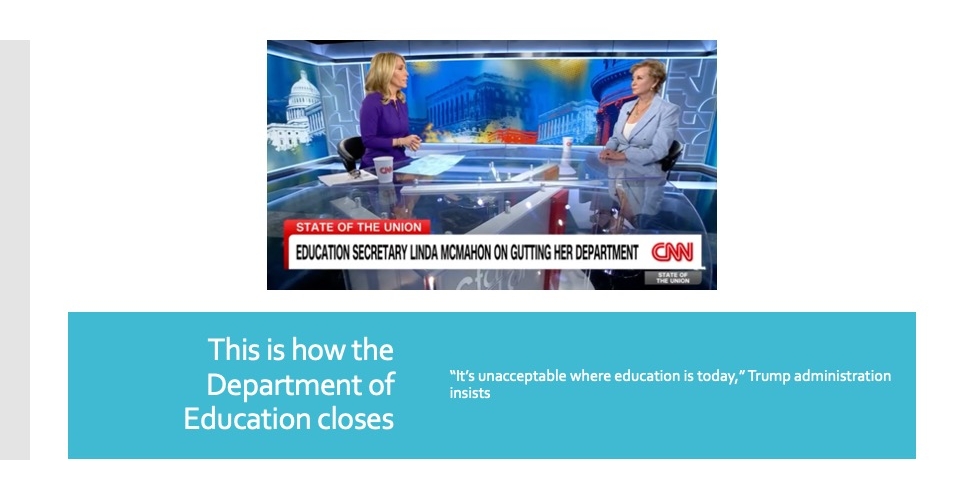I was excited and honored to be a part of FETC 2023 in New Orleans, and then when Dr. Marialice B.F.X. Curran asked me to be the administrator voice for the FETC #DigCitAcademy, I jumped at the chance.
After discussing digital citizenship with many leaders, I reflected on its importance from a district perspective. To prepare for my part in the #DigCitAcademy, I recognized that digital citizenship is an essential skill for students in today’s increasingly digital world. It involves understanding how to behave responsibly and ethically online and how to use technology safely and effectively.
One of the main reasons that digital citizenship is essential in schools is that it helps to prepare students for the real world. In today’s society, technology is an integral part of daily life, and using it responsibly and effectively is a critical skill. By teaching students about digital citizenship, schools can ensure that they are equipped with the knowledge and skills they need to navigate the online world safely and successfully.
Digital citizenship improves school climate
Another reason digital citizenship is essential in schools is that it can help promote a positive and safe online environment. By teaching students about appropriate online behavior, schools can help reduce cyberbullying, harassment, and other harmful online activities. This can create a more inclusive and supportive learning environment for all students.
Furthermore, digital citizenship can promote critical thinking and media literacy among students. By teaching students how to evaluate the information they find online and how to use technology responsibly, schools can help develop their critical thinking skills and prepare them to be savvy and responsible digital citizens.
Overall, digital citizenship is a crucial concept for students to understand in today’s digital world. By promoting responsible and ethical online behavior, fostering a positive and safe online environment, and promoting critical thinking and media literacy, schools can prepare students for the challenges and opportunities of the digital age.
So how can schools and district leadership begin talking to students about digital citizenship? There are several ways:
- Start by incorporating digital citizenship lessons into the curriculum. This can be done through dedicated lessons on topics such as online safety, responsible social media use, and cyberbullying prevention. These lessons can be incorporated into existing classes, such as media literacy or computer science, or can be offered as standalone classes or workshops.
- Make use of digital citizenship resources. There are many resources available to schools that can help to facilitate discussions about digital citizenship. These can include lesson plans, activities, videos and other materials.
- Involve students in the conversation. Encourage students to share their experiences and perspectives on digital citizenship and create a space where they can discuss the issues and challenges they face online. This can foster a sense of community and support among students and provide valuable insights for teachers and school administrators.
- Develop and implement a comprehensive digital citizenship program. A comprehensive program can ensure that students receive consistent and comprehensive instruction on the importance of responsible and ethical online behavior.
- Set a positive example for students. School leaders can be role models for digital citizenship by modeling responsible and ethical online behavior. This can involve practicing good online safety habits, such as using strong passwords and avoiding sharing personal information online, and promoting technology in a responsible and respectful manner.
- Promote a positive and safe online environment. School leaders can help create a positive and safe online environment by establishing clear policies and guidelines for appropriate online behavior and providing support and resources for students who experience cyberbullying or other harmful online activities.
Connecting with the community
Leaders also have to promote digital citizenship in the community. School leaders can support digital citizenship by involving parents and the wider community in the conversation. This can involve hosting events and workshops for parents, collaborating with community organizations to promote digital citizenship, and sharing information and resources with the wider community.
Quick, easy and free: A few ideas for jumpstarting teacher job satisfaction
By hosting community events and workshops, sharing information and resources, partnering with community organizations, and engaging with local media outlets, school districts can help to promote understanding and engagement with this important topic.
Because digital citizenship refers to the responsible use of technology and the internet leaders too often focus on just the dangers, but the true drive to emphasize digital citizenship is also to highlight the positive aspects of digital citizenship, such as:
- Access to information: The internet has made it easier than ever before to access a vast amount of information on virtually any topic. This can help people learn new things, discover new ideas, and expand their knowledge and understanding of the world.
- Connectivity: The internet has also allowed people to connect with others worldwide. This can help foster a sense of community and belonging and provide support and collaboration opportunities.
- Convenience: Technology and the internet have made many everyday tasks and activities more convenient. For example, people can now shop, bank, and communicate with others from their homes.
- Creativity and expression: The internet has also provided a platform for people to express themselves and share their creative work with others. This can include writing, art, music, and video, among other things.
- Opportunities for learning and growth: The internet has also opened up new opportunities for learning and personal growth. For example, people can now take online courses, watch educational videos, and access a wide variety of learning resources.
Overall, digital citizenship can provide many benefits and opportunities for individuals, communities, and society as a whole. By developing and implementing comprehensive digital citizenship, school leaders can help to ensure that students have the knowledge and skills they need to be responsible and successful digital citizens.



